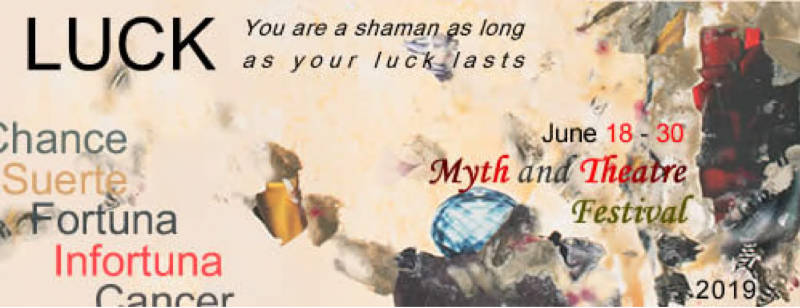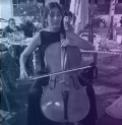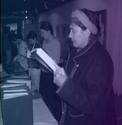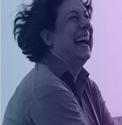
Luck: Myth and Theatre Festival
Editorial
Luck is a talismanic word that opens the gateways to two crucial notions in the performing arts: magic and shamanism. Roberte Hamayon, the emeritus great lady of Sorbonne shamanism, brought luck back into the fore when she quipped at a doctoral student for nit-picking on the definitions of shamanism; she sentenced: “You are a shaman as long as your luck lasts.”
I was sitting next to her and practically fell off my chair! Her ‘verdict’ went straight to the core-yoke of performance – certainly the way I wish to practice it in a choreographic theatre. She said it in French: ‘as long as your chance lasts’. Chance makes matters even richer because it involves action and acting: you take a chance (risk), you take your chance (opportunity). And what to do if luck ‘befalls’ you (the etymological root of chance)? Or doesn't ? Well, you come to this festival to practice !
Luck is a skill of the highest and most acute sensitive order. It joins up with other god-terms like karma, spirit, fate, consciousness, kairos. Hamayon sums these dimensions of luck in the title of her main book: La Chasse à l’Âme – Hunting for Soul. What else are we doing in our performance laboratories other than “hunting for soul”? No soul: no luck, no quality, no art. Hamayon places the Siberian origins of shamanism in the luck factor when hunting animals. Notice the proximity between anima (the Latin for soul) and animal. Luck entails a soul ‘commerce’ with animal spirits: intuitive give-and-take moves with the keenest sense of ethical (and ecological) values regarding the very necessity to kill.
Death tempers, for sure, and weighs down the ‘happy go lucky’ connotations of luck. Puzzled friends, at first, saw luck as superficial, light and haphazard. In its magical (i.e. sympatheia) dimensions, luck simply ‘knows better’ than us - certainly in complex performance work. Animals, like weathered performers, are lucky because they “nose” it. But, on the other hand, we also know that bad luck can cast terrible shadows : misfortune and misery, random injustice, despair. All our ‘work in progress’ projects (to be presented at the festival), address the sobering undertones of luck, from schizophrenia to, especially, cancer.
The aim is to ‘cultivate luck’, to refine both the knowledge and ‘nose-ledge’ of our chances, in order (and in disorder) to make the right, or necessary wrong moves. To ‘shamanize’ is to move luck and performance into poetic justice.
Enrique Pardo
Director
REGISTRATION INFORMATION






